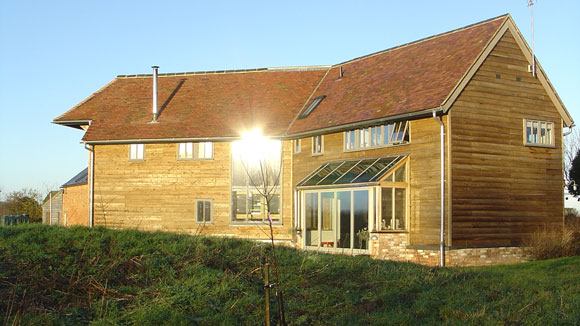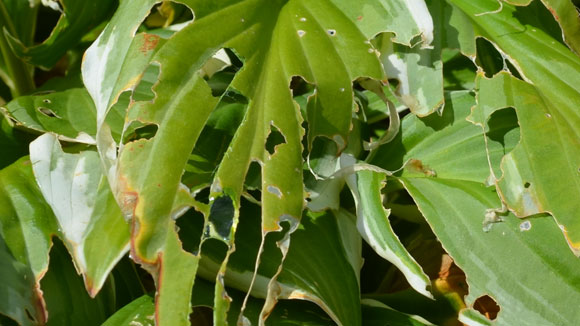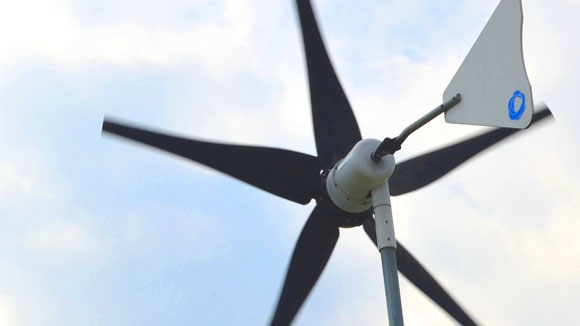From the snippets I’ve heard from the organisers the first Transition Forest of Dean and Newent Eco open homes event it was a great success. We had a good number of people visit Chapel Farm, with high interest in the ground source heat pump, the recycled materials used, the insulation methods and low-emissivity glass. It was good to be able to share ideas and to hear what others are doing to save money, energy and reduce CO2 emissions. From sheeps wool insulation to recycled tyre tiles; wind turbines to rain water harvesting, self sufficient gardening and PV panels, it is good to see that there is lots of local knowledge.
Author Archives: Issi
Eco Open homes Forest of Dean 2011
If you’re around Gloucestershire this weekend, 10/11th September, 28 homes and businesses throughout the Forest of Dean and Newent will be open to the public demonstrating how to save money and CO2 through energy saving design and technologies. This is Transition Forest of Dean and Newent Eco open homes event, part of the Heritage Open Days scheme. As well as seeing Rainwater harvesting systems and self sufficient gardens our own Chapel Farm, in Hartpury, will be open as an example of a new build embracing eco-ideals from the start. You could argue that our greenest option could have been to stay living on site in a caravan! However, given that the existing farmhouse was subsiding due to a combination of the mud stone it was built of, the clay soil and the number of large willow trees in the garden, we wanted to demonstrate that it was possible to build a well designed home, sensitive to it’s locality whilst minimising it’s environmental impact and to strict budget! The part green oak framed Chapel Farm house was built re-using lots of materials from the previous house, is clad in locally produced larch from the Forest of Dean, and designed to maximise solar gain with high insulation values. We have a ground source heat pump and two 1.5 kw wind turbines. In 2007 Chapel Farm was a finalist in the Grand Designs Eco-homes Awards.
Jam tomorrow – Fallen fruit jam maybe?
Has it been a bumper year for plums? It has in our garden with the trees laden with damsons, blaisdons, cherry plums, mirabelles. The thing is, I never seem to get to the fruit before it falls to the ground, and the dog keeps eating the bounty (stones as well), before I can scoop it up for jam. Anyway I think I’ve got enough for a few jars of ‘fallen fruit jam’. Whether I get round to making it remains to be seen! The mirabelles look particularly lovely and are really easy to stone, so there is hope for them. If I’ve got enough – ‘mirabelle vodka’ sounds enticing. And it looks like there is going to be lots of sloes this year too – so sloe gin will no doubt be made, and last years will make a Christmas appearance. The hedges also look laden with blackberries (not ripe yet), but with so little rain earlier in year I wonder how big they will get. I noticed the supermarkets are selling jam jars for jam making (why not just re-use old ones?), and fruit bottling jars, obviously not wanting to miss out on an opportunity to capitalise on the perceived ‘make do and mend’ mentality that is gripping the nation. I even read in Leo Hickman’s column that Tesco sells chicken houses. As my mother-in-laws says “Whatever will they think of next?”.
Nudge, nudge, wink, wink ….
I wonder how much money has been spent by successive governments trying bring about ‘quick-fix’ behavioural change? A lot I imagine. The just published Behaviour Change report by the House Of Lords Science and Technology Sub-Committee, suggests that ‘nudges’ alone won’t work “… changing the behaviour of a population is likely to take time, perhaps a generation or more, and politicians usually look for quick win solutions.”
The same is true on reducing carbon emissions. We can’t rely solely on individuals to sufficiently change their behaviour in order to reverse the impact of climate change. A combination of incentives and regulation, whether we like it or not is needed – look at how reducing the tax on energy efficient cars has stimulated their sale or how ‘feed-in-tariffs’ have suddenly made a lot more people ‘interested’ in solar power. We need ‘nudges’ but the other stuff has to go along in tandem.
Make a career out of saving the planet
The choice of going to University is becoming an expensive option, with the new fee system leaving many young people seriously considering whether it’s worth the investment, exacerbated by a very shaky job market. There is one business sector that’s booming – the renewables arm of building services engineering (heating, plumbing, air conditioning, refrigeration and electrics) – with legally binding carbon reduction targets and government funding streams driving forward alternatives to fossil fuels for Britain’s homes and businesses.
Slugs eating hosta’s
Should I give up on growing hostas? The thing is, I like them, but so do slugs and snails! I don’t like using slug pellets because of the consequences of the nasty chemicals, so my hosta’s look good for a while and then end up chewed and tattered. I have tried lots of things – crushed egg shells around the base, coffee grounds, copper coins, Vaseline around pots, and picking the blighters off by hand. We have quite a few blackbirds and thrushes who visit, but no hedgehogs to act as natural predators. Any suggestions welcome! Organic gardening offers lots of challenges, but I’m not prepared to introduce lots of chemicals into the garden, or to spend hours watering stuff.
Walking coast to coast
Having spent the weekend accompanying a friend on her challenge of walking Wainwrights 190 mile coast to coast route. (I walked a mere 14 miles!), I was struck by several things, – firstly what a fantastic achievement it is for her, after recovering from breast cancer, and, secondly, what a vital role walkers and cyclists have in supporting the rural economy. Many B&B’s are supported, throughout the year, by a steady stream of ‘one nighters’ on a mission! My friend used a combination of hostels and B&B, and local pubs and, when in civilisation, the local shops. And when her backpack, got too much – the services of a local luggage courier service. Toursim is vital to our national parks, but getting the balance right and keeping these unique places ‘special’, capable of meeting our competing demands is a real challenge. Taking a holiday in the UK has so much to offer and it helps our economy too. And my friend raised over £1000 for the charity Maggies, which provides support for people affected by cancer, their families, carers and friends to empower people to live with, through and beyond cancer.
We need to love our bees
Who knows if Einstein really said: ‘No more bees, no more pollination, no more plants, no more man.’ If he did, he didn’t specify just honey bees, did he? While it is right to be concerned about the decline of the honey bee, the effects of pesticides on them and the spread of strange sounding diseases and parasites such the varroa mite, we need to look out for the wild bee too. Having recently met the enthusiastic team behind the Bee Guardian Foundation, I’m staggered to learn that there are over 20,000 species of bee around the world, 250 of which can be found in the UK. Solitary or social these bees go about their work not causing any fuss. Bees are responsible for pollinating around 80 per cent of our main crops. So whilst a old Albert, or whoever is was, might have been over dramatic in his/her prediction, it’s true to say that the world would be a very different place without these important pollinators. As the Bee Guardian Foundation says “Without bees many fruits and vegetables would become scarce and prohibitively expensive, or not available at all.” And it’s not just the stuff we eat, bees pollinate flowers and plants supporting other organisms, we rely on plants for biodiversity.
Mason bees (do they have a strange handshake?), leaf-cutter bees, carpenter bees, sweat bees (mm nice!), mining bees (I imagine they wear hard hats), and of course the humble bumble bee all have vital roles to play in the environment. The bumble bee also has it’s own champion in the Bumble Bee Conservation Trust , set up to stem their decline. And the Help Save our Bees campaign is working to do just that. We need to do what we can to safeguard all our bees; simple things like making your garden bee friendly – wildlife gardening, even window boxes and tubs can be planted to attract bees, making bee houses – simply sticking up bits of wood with drilled holes they can nest in, avoid using pesticides, and tell others how important wild bees are.
What about wasps? – sorry, I can’t bring myself to champion these.
The wrong type of wind?
We’d noticed that during the past couple of years our turbines have been spinning a lot less due to a change in wind direction – from a South Westerly to a North Easterly. So it’s disappointing, but not surprising to have it confirmed by the Department of Energy and Climate Change (DECC) annual Energy Statistics, that the amount of energy created from on-shore wind turbines dropped by 7.7 per cent in 2010. That’s despite a 14 per cent growth in the number of turbines last year, so the decline per turbine in actually much greater.
According to DECC’s figures the average output from Britain’s 275 onshore wind farms fell to the lowest level on record, due to a drop in wind speeds. The report said: “Ten months of 2010 saw lower wind speeds than the ten-year average.”
So how can we keep the lights on? December 7 last year, must have been a cold day because we saw the demand for electricity at its fourth highest level recorded, and wind farms produced only 0.4 per cent of the power needed by the country. This opens up the argument for opponents of wind farms, claiming that if the government relies too heavily on this sector, we will see power cuts. So is it inevitable that nuclear got to be part of the nation’s future energy mix? Can’t we come up with something else? And we can still do more to reduce our energy consumption, all the things we’ve heard before…. Putting on an extra jumper, insulating our homes better, buying energy efficient appliances. But we’ve still got to find a safer solution to our energy needs, as, no matter how windy it gets, on-shore wind turbines can only generate a small amount of energy. Let’s hope it’s a long hot summer for all those people who’ve invested in solar PV panels!
Climate Change: Your questions
Q: Is there any truth that temperature rose during the three day no fly policy after 9/11 and that vapour trails cause cooling?
A: Yes, in the day time at least. Because the skies were almost entirely free of contrails more energy from the sun was able to reach the earth’s surface, rather than being reflected back towards space by the contrails. This was used by some to argue that air travel actually helped to cool the planet through the reflection of sunlight by contrails. However, this overlooks what happened at night. With no contrails the infrared (heat) energy emitted from the earth’s surface is able to escape much more easily and so the surface is able to cool to a much greater degree. When there are contrails these act like strips of blanket – trapping the radiated heat and keeping the surface temperatures higher. So, when both day and night time temperatures are considered, contrails have a net warming effect on our planet, even before we consider the greenhouse gas emissions that they represent. An interesting recommendation made recently was to restrict night time air travel, and so confine the formation of contrails to the day time – where they have less of a positive climate-forcing effect. For more detailed information see this paper from the European Geophysical Union.




